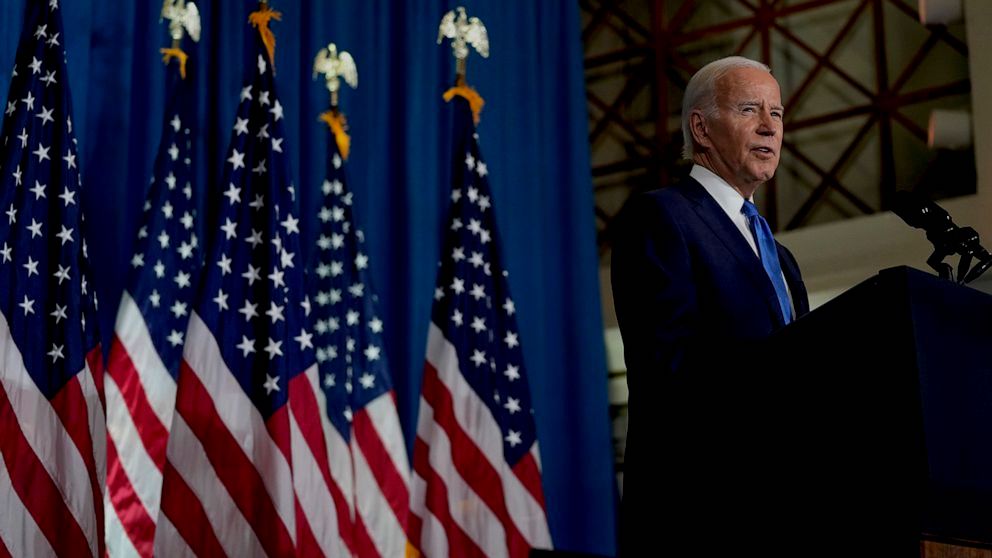Though the votes are still being counted as U.S. President Joe Biden arrives at COP27 following historic midterm elections, U.S. climate action and commitments appear to have strong support across the states. In the eyes of the world, the U.S. has been an inconsistent climate actor, with progress under one administration sometimes undone by the next elected leader, but the strong showing by Democrats in the recent election means large investments in clean energy across the U.S. are likely to prosper over the next two years and beyond.
What parts of Biden’s climate plan & Paris promises are safe?
Biden’s legislative wins so far provide concrete policies and money to back up the country’s renewed climate ambitions. In August, Congress passed the largest climate legislation in U.S. history. When Congress passed the historic Inflation Reduction Act (IRA), it signalled to the world the U.S. is ready to be a trusted climate leader. The bill could cut U.S. emissions as much as 44% by 2030 – which would likely encourage other nations to step up their efforts.
First, the good news. Regardless of who’s in Congress, the IRA lays a strong foundation for investments in clean energy for at least the next few years, and possibly the next decade. It is mostly made up of tax credits – and Biden would veto any Congressional efforts to undo the legislation. This creates a foundation for states and the private sector to build on. For instance, GM, a U.S. automotive company, publicly supports the EV incentives in the IRA, and that’s a big deal since the transportation industry is one of the largest contributors to greenhouse gas emissions in the U.S.
Another signal for hope – U.S. climate policy is already being put into action, and even Republican states are taking advantage of the incentives. Ohio plans on building a multi-billion dollar battery factory. Wyoming is working to launch a direct air carbon capture project which promises to remove five million tons of carbon dioxide from the air per year by 2030.
With the midterm election results that we have so far, the U.S. also has some new and returning climate champions. Maryland, Massachusetts, Minnesota, and Michigan elected Democratic governors and state legislatures that could be well positioned to protect or strengthen clean energy targets. Pennsylvania, the second largest producer of natural gas in the U.S., just elected a Democrat to the Senate, inching Democrats closer to holding the majority.
And many U.S. states, such as Michigan, have larger GDPs than some European nations. Michigan’s economy is larger than Denmark’s – giving the state an opportunity to set a national and international example with its pro-climate agenda.
Now, the bad news. Although Biden, pledged to quadruple U.S. financial support to developing countries to adapt to worsening climate impacts and shift from fossil fuels to clean energy, a Democratic-controlled Congress has so far failed to pass the 2023 budget, which includes significant ($11.4 billion) international climate finance. Having a Republican or split Congress will make this prospect even more difficult which is why Democrats need to urgently deliver on climate finance promises before the end of the year. Climate advocates from around the world will be watching to see how the wealthiest and most polluting nations, like the U.S., talk about this issue during COP27.
To keep its credibility on the global climate stage, the U.S. will need to support climate finance priorities in Egypt and work quickly to deliver the money promised at home.
Where are opportunities for bipartisan progress?
Midterm results show that clean energy remains a bipartisan issue — Republican candidates largely avoided criticising the landmark climate law. A majority of Americans in nearly every U.S. state are concerned about climate change, and climate was a priority issue for half of voters in this election. The U.S. economy, across blue and red states, is transforming, rapidly electrifying, and building renewable energy at a fast pace, which sets up many opportunities for continued bipartisan progress.
One area of interest for both parties is providing even more tax incentives for clean energy projects. The Climate Solutions Caucus, a group made up of Republican and Democratic Congressmembers, have put together the Financing Our Energy Future Act. The act would provide “investors in clean energy projects access to a tax advantage that is currently available only to investors in fossil fuel-based projects.”
Votes are still being counted as Biden heads to COP27, but regardless of who has control of either the House or Senate, the U.S. is on the road to a domestic clean energy transformation. How will Biden use that momentum to also deliver on the international stage during COP?





